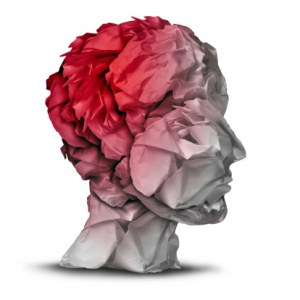 A new study published in Frontiers in Neurology found that a type of MRI imaging might be an effective way to diagnose whether someone who has suffered a concussion will develop a condition known as post-concussion syndrome.
A new study published in Frontiers in Neurology found that a type of MRI imaging might be an effective way to diagnose whether someone who has suffered a concussion will develop a condition known as post-concussion syndrome.
The study examined patients who had been diagnosed with a concussion and provides valuable information for those people, but it ignores a larger issue.
For everyone else, the problem is different; many people aren’t able to recognize the signs and symptoms of a concussion. Even when it’s clear that someone isn’t feeling well or is confused, fingers are rarely pointed at a minor traumatic brain injury. Knowing the signs and symptoms of a concussion is one thing; paying attention to them is another. The circumstances have to be considered along with the symptoms; if someone is confused after tapping their head on the car door, a concussion is far less likely than if they had fallen off a ladder.
Statistically speaking, playing contact sports is more likely to result in a concussion than not. Statistically speaking, being a teenage girl is more likely to result in a concussion than not. However, statistics don’t tell the whole truth. While much has been made of football’s concussion risk, it’s not the most dangerous activity out there. As it turns out, horses are responsible for far more TBIs than you might think.
Contact sports has nothing on horses
Consider this startling information from equine healthcare publication The Horse; “The average number of traumatic brain injury-related deaths in equestrian sport is more than seven times that of traumatic brain injury-related deaths in contact sports (such as American football). That’s an average of 60 deaths in equestrian sports each year. Many of those deaths can be due to an inaccurate diagnosis of concussion” (emphasis ours).
The number is surprising, but perhaps shouldn’t be. The average fall from horseback is from a height of six feet, and safety gear just can’t stand up to a head hit from that height; it’s why construction workers are required to wear safety harnesses any time they’re more than six feet off the ground. Furthermore, the helmets work in equestrian sports are smaller and less padded than those worn in other sports, and riders have no other protective gear. If a rider falls badly, he or she can do serious damage to an unprotected neck, shoulder or spinal cord, too.
When concussions go undiagnosed, the consequences can last a lifetime. Traumatic brain injury changes lives, and professional misdiagnosis can magnify the effects tremendously. If your loved one suffered a traumatic brain injury or a misdiagnosis, you may be entitled to compensation for medical bills and lost income. The dedicated Nashville traumatic brain injury attorneys at the Rocky McElhaney Law Firm can fight for you and your family. Call 615.246.5549, visit our offices in Nashville, Gallatin or Knoxville, or contact us today for a free consultation.
